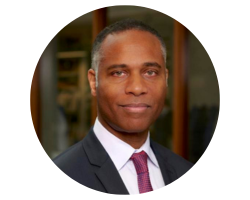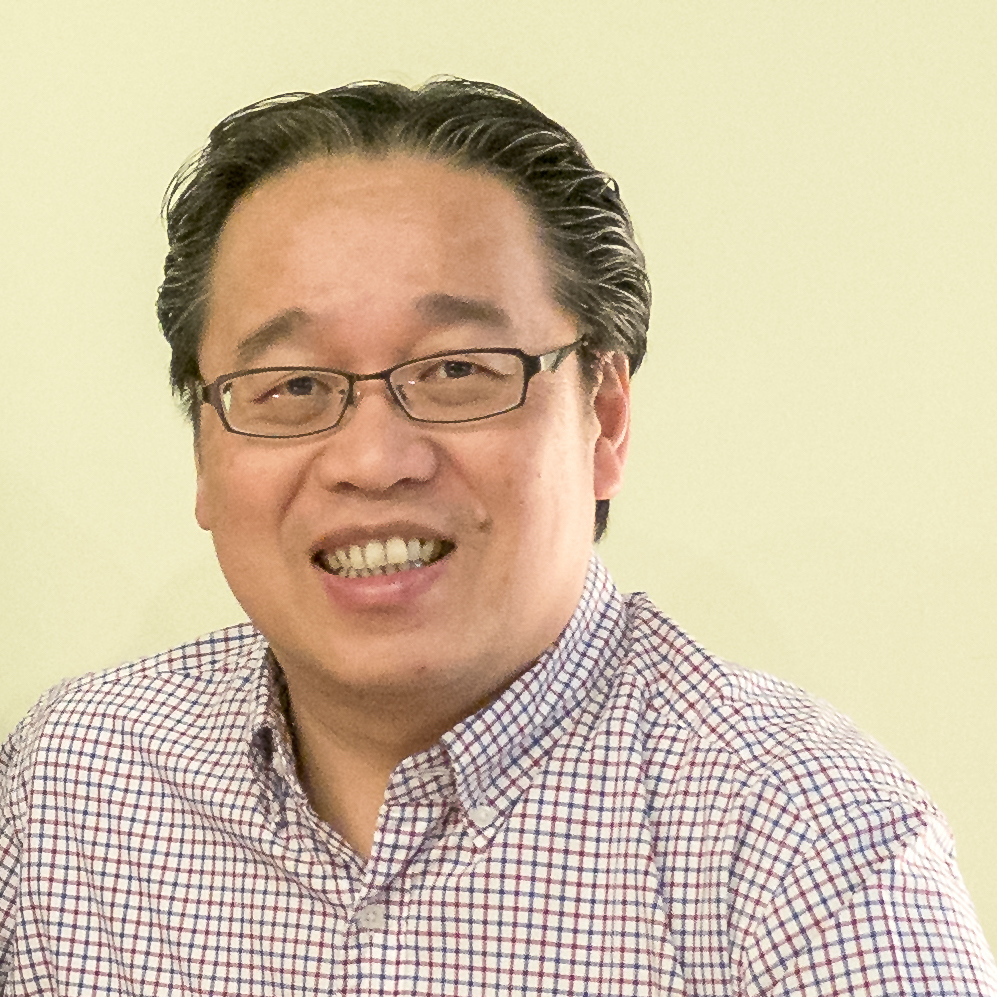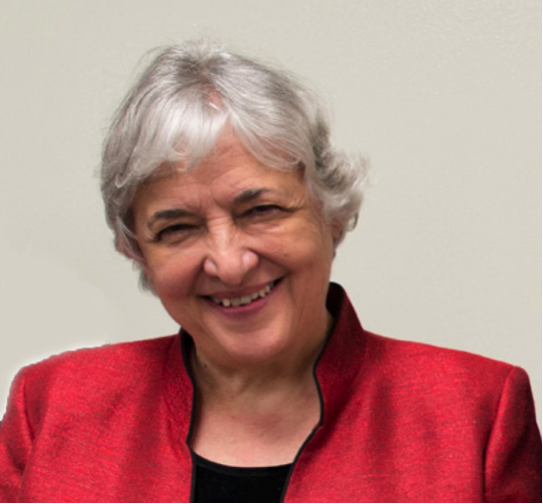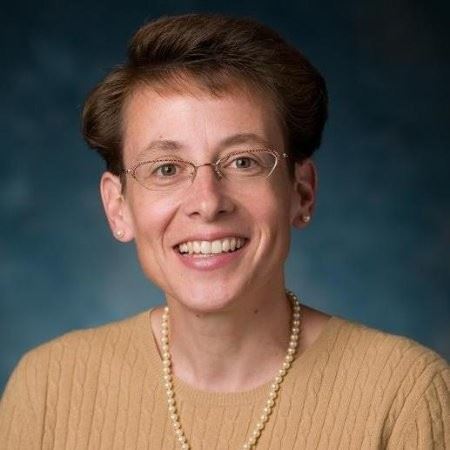Excellence in Biomaterials Science Award |
|
The Excellence in Biomaterials Science Award by the Surfaces in Biomaterials Foundation (formerly known as the Excellence in Surface Science Award) recognizes an individual who has made significant contributions to the biomaterials science field. It is the highest award given by the Foundation. The first award was presented in 1991 to Buddy Ratner, University of Washington. The award is presented at the BioInterface Symposium. The winner is notified before BioInterface and is invited to speak about the advancements made at the symposium. Nominations for the 2025 Excellence in Biomaterials Science Award have closed. If you'd like to nominate someone for 2026, please email info@surfaces.org. |
2025 WINNER: Jeffrey A. Hubbell

Jeffrey A. Hubbell, PhD, New York University
Vice President, Life Science and Engineering
Professor of Chemical and Biomolecular Engineering, Tandon School of Engineering
Professor of Biology and Chemistry, Faculty of Arts and Sciences
Professor of Biochemistry and Molecular Pharmacology, NYU Langone Health
Jeffrey Hubbell is launching an initiative at New York University to build translational biosciences across New York University, between engineering, the basic sciences, and medicine. Before moving to New York, he was at the University of Chicago, helping build Immunoengineering in the Pritzker School of Molecular Engineering. He was previously on the faculty of the Swiss Federal Institute of Technology Lausanne (EPFL, where he served as founding Director of the Institute of Bioengineering and Dean of the School of Life Sciences), the Swiss Federal Institute of Technology Zurich (ETH Zürich) and University of Zurich, the California Institute of Technology, and the University of Texas in Austin. He was elected to the US National Academy of Engineering in 2010, the National Academy of Inventors in 2014, the National Academy of Medicine in 2019, the American Academy of Arts and Sciences in 2021, and the National Academy of Sciences in 2023. He trained in chemical engineering at Kansas State University (BS) and Rice University (PhD).
With more than 400 papers and 100 issued patents, Hubbell uses biomaterials and protein engineering approaches to investigate topics in regenerative medicine and immunotherapeutics. In regenerative medicine, he focuses on biomaterial matrices that mimic the extracellular matrix and growth factor-extracellular matrix interactions, working in various animal models of regenerative medicine. In immunotherapeutics, he focuses on nanomaterials in vaccines that target lymphoid-resident antigen presenting cells, on protein engineering to modulate the tumor microenvironment and materials engineering to induce anti-tumor immunity, and on protein and materials engineering approaches to deliver antigen to the liver for inverse vaccines to induce tolerance to protein drugs, modulate allergy, and ameliorate autoimmunity.
Past Excellence in Surface Science Award Recipients 2024 WINNER: PATRICK E. GUIRE
Patrick co-founded and helped develop SurModics, Inc., now a leading provider of surface modification technologies for medical devices and other health-related surfaces. A large part of the technology development of SurModics, Inc. was funded by government grants and contracts, a significant activity of the company for which he was primarily responsible. At the end of 2004, he founded Innovative Surface Technologies, Inc. (“ISurTec”) to continue and expand his biotechnology and surface chemistry R&D programs. ISurTec’s mission is to apply available experimental science and technology to financially rewarding solutions for human needs, especially those involving surface modification and light-directed bond formation with devices and biomolecules in health care, bioanalytical, and high value industrial products. Patrick’s research activities have resulted in more than 35 U.S. patents issued and filed with him as inventor or coinventor, more than 20 scientific articles in peer-reviewed journals, and a much larger number of government project reports and scientific presentations. Working in the lifescience industry most of his career, he and his teams have won numerous, highly competitive, Small Business Innovative Research (SBIR) grants and contracts (NIH, NSF, DoD) for new technology development in the Lifesciences. Patrick remains active in this area by advising his team at ISurTec. He continues to contribute his high-level strategies to Research, Business, and Production segments. Patrick appreciates the critical contributions of many skilled and inventive team and family members, and taxpayer funding thru fellowships, grants and contracts. |
2023 WINNER: GUILLERMO AMEER
 Dr. Ameer is the Daniel Hale Williams professor of Biomedical Engineering and Surgery in the Biomedical Engineering Department at the McCormick School of Engineering and the Department of Surgery at the Feinberg School of Medicine, Northwestern University. He is the founding director of the Center for Advanced Regenerative Engineering (CARE) and director of the NIH-funded predoctoral Regenerative Engineering Training Program (RE-Training). His research interests include regenerative engineering, biomaterials, additive manufacturing for biomedical devices, controlled drug delivery and bio/nanotechnology for therapeutics and diagnostics.
Dr. Ameer is the Daniel Hale Williams professor of Biomedical Engineering and Surgery in the Biomedical Engineering Department at the McCormick School of Engineering and the Department of Surgery at the Feinberg School of Medicine, Northwestern University. He is the founding director of the Center for Advanced Regenerative Engineering (CARE) and director of the NIH-funded predoctoral Regenerative Engineering Training Program (RE-Training). His research interests include regenerative engineering, biomaterials, additive manufacturing for biomedical devices, controlled drug delivery and bio/nanotechnology for therapeutics and diagnostics.
Dr. Ameer’s laboratory pioneered the development and tissue regeneration applications of citrate-based biomaterials (CBB), the core technology behind the innovative bioresorbable orthopedic tissue fixation devices CITREFIXTM, CITRESPLINETM, CITRELOCKTM, and CITRELOCK ACLTM, which were recently cleared by the F.D.A for clinical use and marketed worldwide. CBBs are the first thermoset synthetic polymers used for implantable biodegradable medical devices. The co-founder of several companies, Dr. Ameer has over 350 publications and conference abstracts and 65 patents issued and pending in 9 countries.
His awards include the Key to the City of Panama, the Society for Biomaterials (SFB) Clemson Award for Contributions to the Literature, the SFB Technology Innovation and Development Award, the Chinese Association for Biomaterials Global Biomaterials Leadership Award, and the Bioactive Materials Lifetime Achievement Award. Dr. Ameer is a member of the National Academy of Medicine and the American Academy of Arts and Sciences. He is also a Fellow of the American Institute of Medical and Biological Engineering (AIMBE), Fellow of the Biomedical Engineering Society, Fellow of the AIChE, Fellow of the American Association for the Advancement of Science (AAAS), Fellow of the Materials Research Society, and Fellow of the National Academy of Inventors. Dr. Ameer is a Deputy Editor for the AAAS journal Science Advances, Associate Editor for the Regenerative Engineering and Translational Medicine journal, a member of the board of directors of the Regenerative Engineering Society, and past chair of the AIMBE College of Fellows.
2022 WINNER: MICHAEL WOLF
Michael F. Wolf is a Distinguished Scientist and Bakken Fellow at Medtronic where he has worked for 34 years with focus on medical device biocompatibility and blood-material interactions. He works in the Core Technology group at the Medtronic Operational Headquarters (OHQ) in Minneapolis and manages its advanced OHQ Blood Laboratory. In his tenure at Medtronic, Mike contributed to the development and assessment of new technologies, new materials and material surface modifications, and helped in the evaluation and release of numerous new products. Mike is also Convener of the ISO10993-4 international standard that focuses on medical device interaction with blood. In this capacity he guided the development of the 2017 revision of the standard. Mike has 10 patents, 28 peer-reviewed publications, and 3 book chapters and serves on the executive board of the International Society for Applied Cardiovascular Biology. He is a fellow in the American Institute for Medical and Biological Engineering (AIMBE). Mike is also the 2018 recipient of the C. William Hall Award from the Society for Biomaterials. Mike has B.S. degrees in Biochemistry and in Chemical Engineering from the University of Wisconsin-Madison and an M.S. degree in Biomedical Engineering from the University of Minnesota. |
2021 WINNER: WILLIAM LEE
 Dr. William Lee is the VP of R&D and Regulatory Affairs at AST Products, Inc. and the President of ICARES Medicus, Inc. (Taiwan). As an engineer, executive and entrepreneur, he has over 30 years of experience in surface treatment technology, and product design and development. Prior to AST Products, Dr. Lee had his working experiences at the Japan Atomic Energy Research Institute, Harvard Medical School/Massachusetts General Hospital, Japan’s largest venture capital firm, JAFCO, and a startup company that he founded, eMembrane, Inc. Dr. Lee has led a team to obtain 20 CE-marking approvals and 4 FDA- 510(k) clearances for medical devices. He is the sole inventor of the LubriMATRIX™ surface treatment technology that has been applied onto more than 5 million intraocular lens (IOL) injectors annually to enable safe and precise delivery of the IOL into the cataract patient’s eye, and was awarded the 2020 Heroes of Chemistry Award by the American Chemical Society (ACS) for such contribution to improve the lives of people worldwide. He was also an awardee for the 2018 GOOD DESIGN® Award by The Chicago Athenaeum Museum of Architecture and Design and the 2008 North America Technology Innovation of the Year Award by Frost & Sullivan. Dr. Lee obtained his B.Eng. and M.Eng. in Chemical engineering, and his Ph.D. in Chemistry and Biotechnology from the University of Tokyo, Japan. He is fluent in 7 languages including English, Japanese, Mandarin and Malay, and a serial Japanese calligraphy awardee in Japan for the last continuous 7 years annually.
Dr. William Lee is the VP of R&D and Regulatory Affairs at AST Products, Inc. and the President of ICARES Medicus, Inc. (Taiwan). As an engineer, executive and entrepreneur, he has over 30 years of experience in surface treatment technology, and product design and development. Prior to AST Products, Dr. Lee had his working experiences at the Japan Atomic Energy Research Institute, Harvard Medical School/Massachusetts General Hospital, Japan’s largest venture capital firm, JAFCO, and a startup company that he founded, eMembrane, Inc. Dr. Lee has led a team to obtain 20 CE-marking approvals and 4 FDA- 510(k) clearances for medical devices. He is the sole inventor of the LubriMATRIX™ surface treatment technology that has been applied onto more than 5 million intraocular lens (IOL) injectors annually to enable safe and precise delivery of the IOL into the cataract patient’s eye, and was awarded the 2020 Heroes of Chemistry Award by the American Chemical Society (ACS) for such contribution to improve the lives of people worldwide. He was also an awardee for the 2018 GOOD DESIGN® Award by The Chicago Athenaeum Museum of Architecture and Design and the 2008 North America Technology Innovation of the Year Award by Frost & Sullivan. Dr. Lee obtained his B.Eng. and M.Eng. in Chemical engineering, and his Ph.D. in Chemistry and Biotechnology from the University of Tokyo, Japan. He is fluent in 7 languages including English, Japanese, Mandarin and Malay, and a serial Japanese calligraphy awardee in Japan for the last continuous 7 years annually.
2020 WINNER: ROBERT LANGER
Robert Langer is one of 12 Institute Professors at the Massachusetts Institute of Technology (MIT); being an Institute Professor is the highest honor that can be awarded to a faculty member. He has written nearly 1,500 articles, which have been cited over 310,000 times; his h-index of 274 is the highest of any engineer in history and the 8th highest of any individual in history (behind Sigmund Freud and a few others). He has more than 1,350 issued and pending patents worldwide. His patents have licensed or sublicensed to over 400 companies. He served as Chairman of the FDA’s Science Board (its highest advisory board) from 1999-2002. His over 220 awards include both the United States National Medal of Science and the United States National Medal of Technology and Innovation (he is one of 4 living individuals to have received both these honors), the Charles Stark Draper Prize (often called the Engineering Nobel Prize), Queen Elizabeth Prize for Engineering, Albany Medical Center Prize, Breakthrough Prize in Life Sciences, Kyoto Prize ,Wolf Prize for Chemistry, Millennium Technology Prize, Priestley Medal (highest award of the American Chemical Society), Gairdner Prize, Dreyfus Prize in Chemical Sciences, Maurice Marie-Janot Award, and the Lemelson-MIT prize, for being “one of history’s most prolific inventors in medicine.” He holds 34 honorary doctorates and has been elected to the National Academy of Medicine, the National Academy of Engineering, the National Academy of Sciences and the National Academy of Inventors. |
 Rena Bizios, Ph. D., a chemical/biomedical engineer by training, is Lutcher Brown Chair Professor in the Department of Biomedical Engineering at the University of Texas at San Antonio. She pursued a career in academia. Her education-related contributions and research accomplishments have been recognized by several awards at the university, regional, and national levels. She is Fellow of six scientific/engineering national/international societies, The Academy of Medicine, Engineering and Science of Texas, and the National Academy of Medicine.
Rena Bizios, Ph. D., a chemical/biomedical engineer by training, is Lutcher Brown Chair Professor in the Department of Biomedical Engineering at the University of Texas at San Antonio. She pursued a career in academia. Her education-related contributions and research accomplishments have been recognized by several awards at the university, regional, and national levels. She is Fellow of six scientific/engineering national/international societies, The Academy of Medicine, Engineering and Science of Texas, and the National Academy of Medicine.
2018 Winner: Anna Belu
Anna’s enthusiasm for knowledge sharing and collaboration is evident through organizing symposia and conferences, and giving many invited talks and tutorials in the fields of surface analysis and biomaterials. Anna has over 40 publications. She has held leadership positions with several technical organizations, including Medtronic’s Technical Forum, the Society for Biomaterials, the Surfaces in Biomaterials Foundation, and the American Vacuum Society (AVS). Anna is a Fellow of the AVS and is currently serving as Trustee. She is a member of the Scientific Committee for the International Conference on Secondary Ion Mass Spectrometry (SIMS) and is Chair of the conference in 2021. Anna is an Associate Editor of the journals Biointerphases and Surface Science Spectra, and previously served as Editor of Biointerphases for four years. 2017 Winner: Victoria E. Carr-BrendelVictoria E. Carr-Brendel, Ph.D. has over 25 years of medical device experience, including the development and commercialization of numerous advanced medical devices across disease states. She began her career with Baxter Healthcare in research and development of an artificial pancreas. She held increasingly higher roles within R&D. She has worked for startup companies within R&D in women’s healthcare (Adiana) and in glucose sensor technology (Dexcom). She worked for three divisions within Boston Scientific (Neurovascular, Electrophysiology, and Peripheral Interventions). Served as general manager of Boston Scientific’s Bayer Interventional business, executing on successful commercial growth and integration strategy. She is currently the Chief Executive Officer at JenaValve Technology, Inc. with operating locations in Munich, Germany, Leeds, England and Irvine, California. JenaValve develops, manufactures and markets transcatheter aortic valve repair (TAVR) systems to treat patients suffering from aortic valve disease. The Company’s Transapical TAVR system, consisting of the JenaValve valve system plus Cathlete PLUS delivery system, has CE Mark approval for aortic valve stenosis and for the unique indication to treat patients suffering from aortic valve insufficiency 2016 Winner: Antonios G. MikosAntonios G. Mikos is the Louis Calder Professor of Bioengineering and Chemical and Biomolecular Engineering at Rice University. His research focuses on the synthesis, processing, and evaluation of new biomaterials for use as scaffolds for tissue engineering, as carriers for controlled drug delivery, and as non-viral vectors for gene therapy. His work has led to the development of novel orthopaedic, dental, cardiovascular, neurologic, and ophthalmologic biomaterials. Mikos is a Member of the National Academy of Engineering, the National Academy of Medicine, and the Academy of Medicine, Engineering and Science of Texas. He is a Fellow of the American Association for the Advancement of Science, the American Institute of Chemical Engineers, the American Institute for Medical and Biological Engineering, the Biomedical Engineering Society, the Controlled Release Society, the International Union of Societies for Biomaterials Science and Engineering, the Tissue Engineering and Regenerative Medicine International Society, and the National Academy of Inventors. He has been recognized by various awards including the Lifetime Achievement Award of the Tissue Engineering and Regenerative Medicine International Society-Americas, the Founders Award of the Society For Biomaterials, and the Robert A. Pritzker Distinguished Lecturer Award of the Biomedical Engineering Society. 2015 Winner: Gail NaughtonDr. Gail Naughton founded Histogen, Inc. in 2007, and currently serves as CEO and Chairman of the Board for the Company. She has spent more than 30 years extensively researching the tissue engineering process, holds more than 100 U.S. and foreign patents, and has been extensively published in the field. During her tenure at Advanced Tissue Sciences, where she was the company's co-founder and co-inventor of its core technology, Dr. Naughton oversaw the design and development of the world's first up-scaled manufacturing facility for tissue engineered products, established corporate development and marketing partnerships with companies including Smith & Nephew, Ltd., Medtronic and Inamed Corporation, was pivotal in raising over $350M from the public market and corporate partnerships, and brought four human cell-based products from concept through FDA approval and market launch. In addition to this work, Dr. Naughton served as Dean of the College of Business Administration at San Diego State University from 2002 until 2011, where she helped to make SDSU the first campus in the nation to found a Ph.D./MBA in life sciences. In 2000, Dr. Naughton received the National Inventor of the Year award by the Intellectual Property Owners Association in honor of her pioneering work in the field of tissue engineering. She sits on the Board of directors of the CR Bard (NYSE: BCR) and the La Jolla Institute for Allergy and Immunology, as well as in the Advisory Board of Georgia Tech, the Ackerman Foundation, Perminova and the Centre for Commercialization of Regenerative Medicine. 2014 Winner: Thomas J. FogartyDr. Thomas J. Fogarty is an internationally recognized cardiovascular surgeon, inventor, entrepreneur, and vintner. He has been involved with a wide spectrum of innovations in business and technology. Dr. Fogarty has served as founder/co-founder, and Chairman/Board Member of over 33 various business and research companies, based on medical devices designed and developed by Fogarty Engineering, Inc. During the past 40 years, he has acquired 135 surgical patents, including the “industry standard” Fogarty balloon catheter and the widely used Aneurx Stent Graft that replaces open surgery aortic aneurysm. Dr. Fogarty has received countless awards and honors; most significantly, he is the recipient of the Jacobson Innovation Award of the American College of Surgeons and the 2000 Lemelson-MIT prize for Invention and Innovation, and was inducted into the Inventors Hall of Fame and the National Academy of Engineering. This award honors an outstanding researcher for significant contributions to surface science at the biointerface or an entrepreneur for practical application of surface science in the development of medical devices. The winner will present his or her work at the symposium Awards session. 2013 Winner: David GraingerDavid W. Grainger is a University Distinguished Professor, the inaugural George S. and Dolores Doré Eccles Presidential Endowed Chair in Pharmaceutics and Pharmaceutical Chemistry, and Department Chair in the Department of Pharmaceutics and Pharmaceutical Chemistry. He is also a full Professor of Bioengineering at the University of Utah. Grainger received his Ph.D. in Pharmaceutical Chemistry from the University of Utah in 1987 studying blood-compatible polymers. He then received an Alexander von Humboldt Fellowship to perform postdoctoral research under Prof. Helmut Ringsdorf, University of Mainz, Germany. This training initiated over 25 years of experience with various aspects of developing “materials in medicine”. Grainger’s research expertise is focused on improving implanted medical device performance, drug delivery of new therapeutic proteins, nucleic acids and live vaccines, nanomaterials interactions with human tissues, low-infection biomaterials, and innovating diagnostic devices based on DNA and protein biomarker capture. Additionally, he is an expert in applications of surface analytical methods to biomedical interfaces, including analytical methods development for difficult organic surface patterns and nanomaterials, and also internationally recognized as an expert in perfluorinated thin films and biomaterials. 2012 Winner: Marcus TextorMarcus Textor is a professor emeritus of ETH Zurich. He studied chemistry at the University of Zurich. Receiving a fellowship of the Royal Society, he spent two years as a postdoctoral fellow at the School of Molecular Sciences, University of Sussex, Brighton, UK. Research covered the preparation and characterization of single crystal surfaces, and the monitoring of catalytic model reactions at these surfaces in vacuo. In 1978 he took up an industrial position at Alusuisse R&D Laboratories, Switzerland, finally with world-wide R&D responsibilities for materials and surface aspects in the application of aluminium and composites for the industrial, automotive and packaging sectors. In 1994 he joined ETH Zurich, Department of Materials and established a research group and teaching program in the area of surfaces and interfaces of light metals and biointerfaces. His main interests in the last decade cover both fundamental, quantitative aspects in the behaviour of materials in contact with biological milieus and the design of surfaces that elicit biospecific responses on the level of proteins, cells/bacteria and tissue. His research activities aimed at developments for the field of biosensors, novel cell culture platforms, biomaterials/ medical devices, functional nanoparticles and smart carriers for drug delivery and medical imaging. He is a member of several international societies and received in 2006 an Award of The AVS Biomaterials Interface Division for substantial contributions to the field of Surfaces in Biotechnology. He has supervised 42 Ph.D. and 91 diploma/master theses and (co)-chaired 20 international conferences in the area of biomaterials, biotechnology and life sciences.
(No award was presented in 1992, 1993, 1994, 1995, 1997 or 1998) |
.png)

.png) Dr. Patrick Guire, Ph.D., Chairperson, ISurTec. Patrick’s career is quite notable, as exemplified by his receipt of the 2006 Tibbets Award (individuals judged to exemplify the very best in Small Business Innovation Research achievement), and the 2008 Techne Award (Technology Executive of the Year – Small and Growing).
Dr. Patrick Guire, Ph.D., Chairperson, ISurTec. Patrick’s career is quite notable, as exemplified by his receipt of the 2006 Tibbets Award (individuals judged to exemplify the very best in Small Business Innovation Research achievement), and the 2008 Techne Award (Technology Executive of the Year – Small and Growing).

 Anna Belu is a Senior Principal Scientist, Technical Fellow and Bakken Fellow at Medtronic plc in Corporate Science and Technology. Anna has over 25 years of experience in surface science, materials, and characterization, with a keen focus on medical devices and the biointerface for the past 20 years. At Medtronic, Anna leads the Microscopy and Surface Analysis team, is Chair of the Analytical Lab Council, and is Liaison to Coronary Structural Heart R&D. Anna received her B.S. in Chemistry from Denison University in Ohio, her Ph.D. in Analytical Chemistry from the University of North Carolina, and spent two years as a postdoctoral fellow at the University of Washington in the Department of Bioengineering. Her first industrial position was with Physical Electronics as a Staff Scientist for four years.
Anna Belu is a Senior Principal Scientist, Technical Fellow and Bakken Fellow at Medtronic plc in Corporate Science and Technology. Anna has over 25 years of experience in surface science, materials, and characterization, with a keen focus on medical devices and the biointerface for the past 20 years. At Medtronic, Anna leads the Microscopy and Surface Analysis team, is Chair of the Analytical Lab Council, and is Liaison to Coronary Structural Heart R&D. Anna received her B.S. in Chemistry from Denison University in Ohio, her Ph.D. in Analytical Chemistry from the University of North Carolina, and spent two years as a postdoctoral fellow at the University of Washington in the Department of Bioengineering. Her first industrial position was with Physical Electronics as a Staff Scientist for four years.